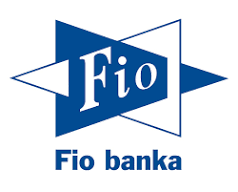News
Flats for short-term rentals on the rise
March 2017/
The increasing number of flats being turned into short-term rentals is impacting on hotels and also rental properties in Prague and elsewhere in the Czech Republic. But worldwide, some cities are starting to regulate short-term rentals for both public safety and to stop distortion of the real estate market. So far, regulations have not been proposed in the Czech Republic.
Between 2015 and 2016, some 3,000 flats went into use as Airbnb accommodations in Prague, and the total was over 7,000 flats for short-term accommodation, according to experts cited by daily Hospodářské noviny (HN). Real estate portals in Prague currently list fewer than 3,000 flats for long-term rental.
Due to low mortgage rates, Czechs have been buying flats to rent out. By renting long-term an owner can get Kč 20,000 per month for a flat in the center of Prague, but by renting short-term to tourists the owner can get three times as much, Martin Satar of Tide Reality told HN. At one new project near Wenceslas Square about 40 percent of the flats sold were to people who intended to use them for short-term rental, Tide Reality executive director Pavel Velebil said.
Real estate firm Svoboda & Williams also registers demand for apartments for short term rental. The company said that only a limited number of flats are suitable for services like Airbnb. These are smaller flats and ones located in Prague 1 and the neighborhoods of Vinohrady, Žižkov and Smíchov.
It isn't just tourists using the short-term rentals. Another factor that puts pressure on flats in the city center is visiting film crews, for example. Producers seek furnished flats in the city center for one to six months for actors and technicians.
Rental prices should increase 10 to 20 percent this year in all locations and especially for smaller flats. The cause is due to demand from people moving to Prague for jobs due to the improved economy, according to HN. Long-term rentals at affordable prices vanish from the listings often the same day they are posted. Airbnb prices are also likely to go up.
But not everyone is happy with short-term rentals. Experts from Svoboda & Williams and Tide Reality said that many people return to long-term rentals after trying short-term ones. Despite the higher money, short-term rentals require a lot more work and also cause more wear and tear to the flats. It also causes more complaints from the neighbors as tourists on vacation can be loud, and neighbors also object to the number of strangers in the building and the possibility of increased theft.
Some Prague buildings are now prohibiting short-term rentals in their rules, though enforcing this sometimes ends up in court.
Efforts are beginning in the United States to regulate short-term accommodation services such as Airbnb. The state of New Jersey is discussing a law that allow cities to regulate or ban rentals for under 30 days under certain conditions. The number of short-term rental units in a building would be limited, and liability insurance would be required. The stated reason is for public safety. New York City is also considering regulations, as the short-term rentals have impacted adversely on the real estate market.
In Europe the cities of Berlin, London and Amsterdam have already imposed some restrictions on short-term rentals.
Get the best interest rate!
Our partners
















